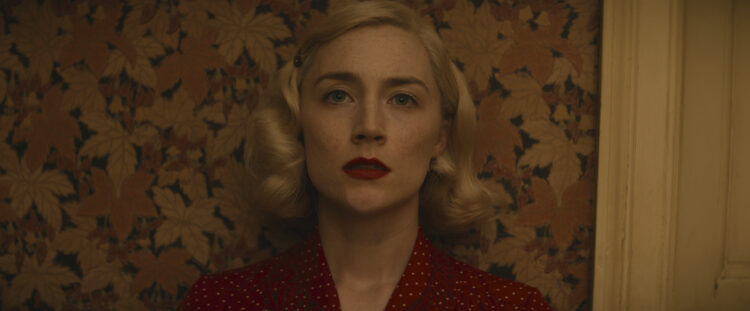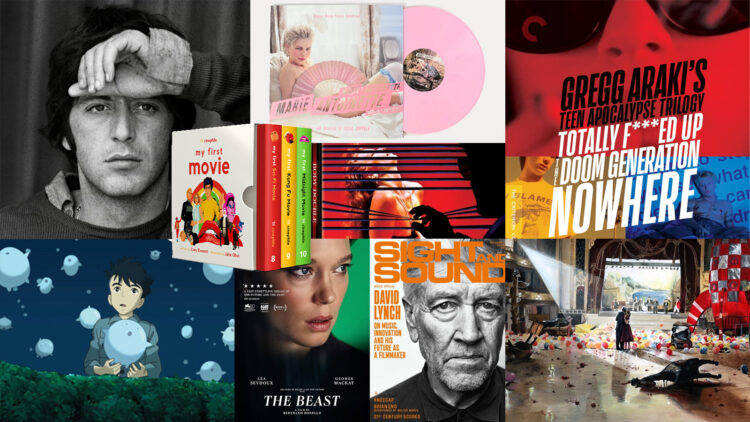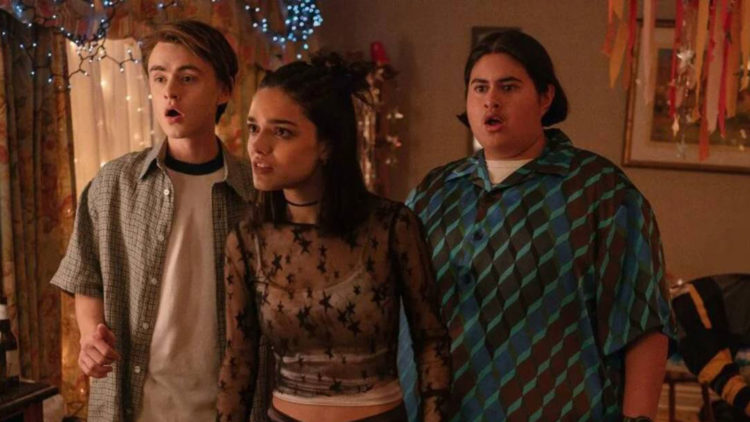

Steve McQueen has long been upfront about his desire to make a musical; before Widows underwhelmed at the box office, it appeared likely that a passion project within that genre would be his next film. With each subsequent effort, it seems McQueen is slowly pushing himself into that wheelhouse, getting audiences to imagine what such a film in his distinctive style would look like––it’s similarly become apparent that it would be less reminiscent of the downbeat New York, New York sequence in Shame, more like the jukebox joys of his Small Axe entry Lovers Rock. For a filmmaker who was initially characterized as one obsessed with bleak character studies, he is increasingly finding an inner warmth through music, and in his large-scale WWII drama Blitz he utilizes the power of a communal sing-along in ways reminiscent of Terence Davies, cutting through the darkness with tunes wherever possible.
Music is at the heart of Blitz, exclusively shown as shorthand for connection in the face of prejudice. This broad, saccharine message signals that this is McQueen’s most unashamedly populist work yet, although that’s hardly to its detriment––this is a director making a hopeful, family-focused feature for the first time, and he’s unashamedly aiming for the lofty highs of Spielberg’s tear-jerking, child-centered dramas, albeit with mixed results. Our young protagonist is George (Elliott Heffernan), a 12-year-old boy at the outset of Nazi Germany’s London-bombing campaign whose mother, Rita (Saoirse Ronan), is holding out on making him evacuate the city. But this is during the earliest stages of the Blitz, before London’s underground tube network was opened at night for people to shelter from the bombs; after one near-escape from certain death, George is reluctantly sent away.
Angry at his mother and refusing to say goodbye, it’s not long after George’s train leaves the city that he aims to escape the carriage and head back home to apologize. This starts a series of episodic adventures as he sets his sights on returning home––bonding with a group of rebellious brothers in an escapade straight out of an Enid Blyton novel, or falling in with a group of Oliver Twist-esque adult criminals (led by Stephen Graham and Kathy Burke) who need the help of a young person to sneak into burnt-out buildings and steal the jewelry of the deceased. Although McQueen has labeled the film “war as seen through a boy’s eyes,” the number of mounting narrative obstacles keeping him apart from his mother are far more heightened than such a grounded elevator pitch would suggest; still it’s a far cry from the video-game-maximalism of the slightly more adult 1917. It’s the clearest sign McQueen is aiming to teach a new generation about this period of British history, all while being overly self-aware that children and teens need more excitement to stop Blitz from feeling like the kind of movie that would only ever be shown in a classroom.
But this is a feature, not a bug, and such approach allows the writer-director to vividly bring to life all the nooks and crannies of the city during this era, from the factories to the deteriorating tube stations and bombed-out landmarks, each frame rich with detail without ever lingering too long to congratulate itself on the historical accuracy. It’s perhaps why the screenplay feels disappointing in comparison, with one of the lesser-explored themes in WWII fiction depicting this period––the racism faced by Black Brits and immigrants––frequently highlighted yet never explored in-depth. There’s a bluntness to the unrelenting racism George is on the receiving end of, or bears witness to, which one character even verbalizes as being the mentality of Hitler’s Germany, not Britain.
That speech effectively brushes any further discussion under the carpet––perhaps a sign McQueen was aiming for a more mainstream appeal, not wanting to start a knottier conversation about the similarities in social attitudes between the two opposing countries in the War. It’s Blitz‘s biggest missed opportunity, especially as elsewhere it feels far more comfortable addressing facts that are more romanticized in the history books (e.g. tube stations remaining closed for long stretches of the bombing campaign, something retroactively brushed over). Let’s not forget Darkest Hour, in which Gary Oldman’s wartime Churchill shelters with a multicultural slither of the public in the subway, rewriting history alongside the pervasive racism of this time in the process. There’s a stronger film inside Blitz that acts as a far more excoriating corrective to this nostalgic reimagining of an infamously dark period for the country––McQueen just can’t find a way to make that palatable through his young protagonist’s eyes.
As a blockbuster adventure, Blitz has far more historical texture and a significantly less-romantic outlook than you’d expect from an unashamedly mainstream British drama. Even without that romanticism, it’s the most hopeful movie he’s made; Blitz is also the one most lacking for greater depth.
Blitz premiered at the 2024 BFI London Film Festival, will close the 62nd New York Film Festival, and will open in the U.S. and UK on November 1 before coming to Apple TV+ on November 22.
The post BFI London Review: Blitz Is an Unabashedly Hopeful, Mainstream Work from Steve McQueen first appeared on The Film Stage.



